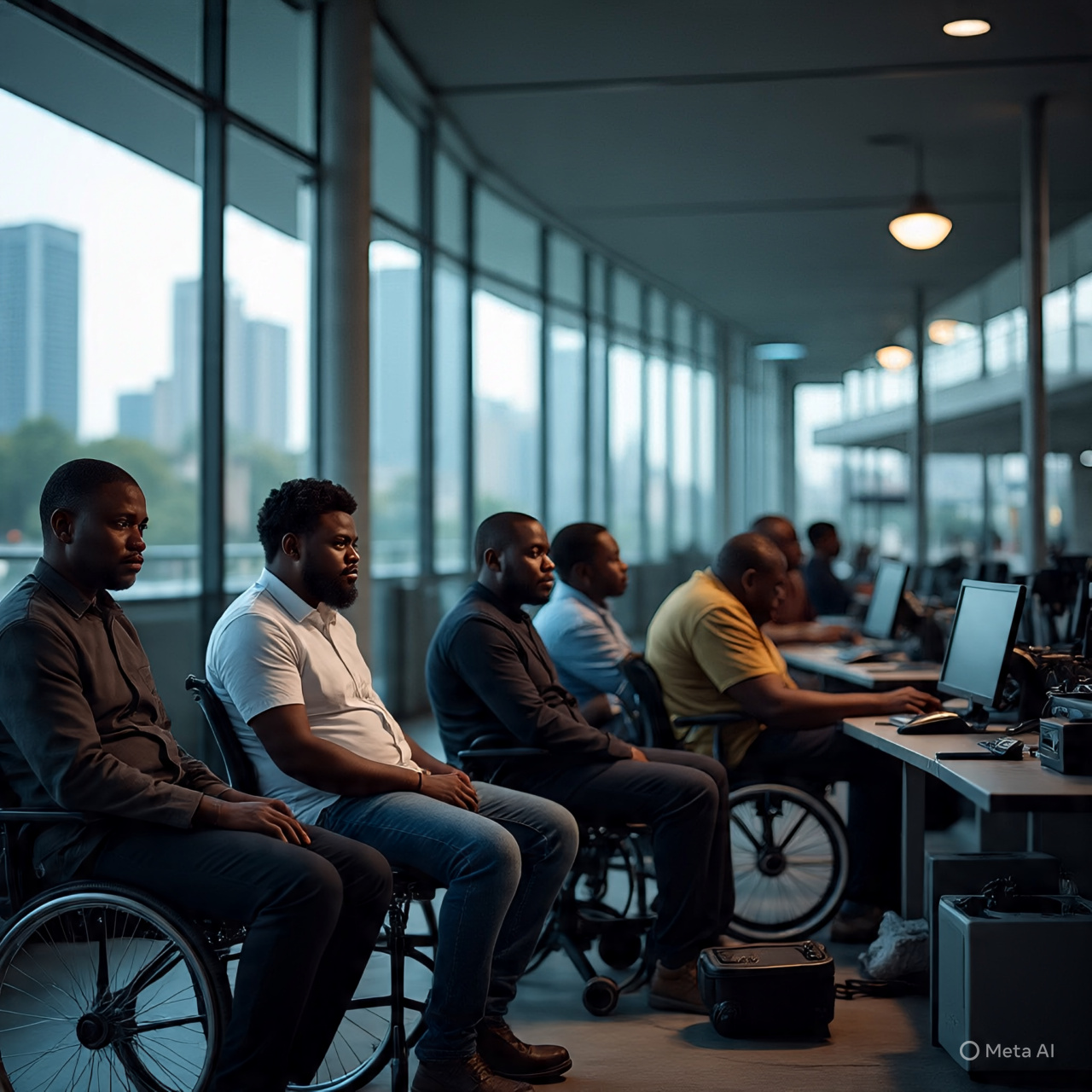Introduction: Building a More Inclusive Nigeria
Empowering persons with disabilities (PWDs) in Nigeria is not just a moral obligation — it is a catalyst for building a stronger, more inclusive society. With over 29 million Nigerians living with disabilities, addressing accessibility, inclusion, and empowerment has never been more urgent. In this article, we explore real stories of resilience, practical support systems, and community-driven initiatives that promote social inclusion and personal growth for individuals with disabilities.
The State of Disability in Nigeria
Despite progress, PWDs in Nigeria continue to face systemic challenges, including:
-
Limited access to education due to inadequate facilities.
-
Workplace discrimination and high unemployment rates.
-
Healthcare gaps, leaving many without essential rehabilitation services.
-
Stigmatization and exclusion from community life.
In 2019, Nigeria passed the Discrimination Against Persons with Disabilities (Prohibition) Act, a landmark law aimed at protecting rights, promoting inclusion, and mandating accessibility. But implementation remains slow — which is why NGOs, advocacy groups, and individuals are stepping in to fill the gap.
Stories of Resilience: Triumph Over Barriers
1. Chidinma’s Journey to Independence
Chidinma, a young woman from Enugu who lost her ability to walk after a car accident, faced years of exclusion and depression. With support from a local NGO, she was trained in digital marketing. Today, she runs her own online business and mentors other young women with disabilities.
Takeaway: Empowerment programs that focus on skills acquisition help PWDs gain financial independence and confidence.
2. Abdul’s Advocacy for Inclusive Education
Abdul, born with visual impairment, fought for his right to attend mainstream school. His perseverance, combined with NGO support that provided braille books and teacher training, allowed him to graduate top of his class. He now advocates for inclusive education policies in Northern Nigeria.
Takeaway: Advocacy combined with policy reform can transform lives and pave the way for future generations.
3. Ngozi’s Success in Adaptive Sports
Ngozi, an athlete with a limb difference, discovered para-athletics through a community outreach program. Competing nationally, she has become a voice for disability sports inclusion, inspiring young athletes across Nigeria.
Takeaway: Sports and recreation play a critical role in building confidence, health, and social integration.
Key Areas of Support and Empowerment
1. Education and Skill Development
-
Inclusive schools with ramps, assistive technology, and trained teachers.
-
Vocational training centers teaching computer skills, tailoring, and craft-making.
-
Scholarships and sponsorships for higher education.
2. Employment Opportunities
-
Partnering with businesses to create inclusive workplaces.
-
Offering entrepreneurship training and micro-finance loans.
-
Highlighting successful PWD-owned businesses to inspire others.
3. Healthcare and Rehabilitation
-
Expanding access to physiotherapy, assistive devices, and mental health support.
-
Establishing community-based rehabilitation (CBR) programs.
-
Raising awareness about disability-friendly healthcare services.
4. Advocacy and Policy Engagement
-
Enforcing the Disability Act at federal and state levels.
-
Promoting accessible transportation and public infrastructure.
-
Encouraging PWD representation in government decision-making bodies.
How Social Inclusion Strengthens Communities
When PWDs are fully included in education, employment, and social life, entire communities benefit. Research shows that inclusive economies experience higher productivity and social cohesion. Here’s why social inclusion matters:
-
Economic Growth: Empowered individuals contribute to the economy.
-
Cultural Diversity: Representation in arts, media, and leadership changes mindsets.
-
Reduced Poverty: Employment opportunities break the cycle of dependency.
-
Stronger Democracy: Policy-making becomes more representative of all citizens.
The Role of Technology in Empowering PWDs
Technology is a game-changer for persons with disabilities in Nigeria:
-
Assistive Tech: Screen readers, braille displays, and speech-to-text software.
-
Telehealth: Virtual consultations for those with mobility challenges.
-
E-Learning: Online training platforms make education accessible anywhere.
-
Digital Marketplaces: Enabling PWDs to sell products and services online.
What NGOs and Communities Are Doing
Many Nigerian NGOs are actively working to close the inclusion gap:
-
Inclusive training programs for entrepreneurship.
-
Peer support groups to address mental health.
-
Community awareness campaigns to reduce stigma.
-
Legal aid services to protect rights of PWDs facing discrimination.
How You Can Support
Empowerment is a collective effort. Here’s how individuals, organizations, and businesses can contribute:
-
Volunteer: Offer mentorship, training, or professional services.
-
Donate: Fund assistive devices, scholarships, or healthcare programs.
-
Advocate: Use your platform to raise awareness about inclusion.
-
Hire Inclusively: Give qualified PWDs fair employment opportunities.
-
Partner with NGOs: Collaborate on programs that create lasting impact.
Building a Future of Equity and Inclusion
The journey toward disability empowerment in Nigeria is ongoing. By sharing stories of resilience, supporting community-driven initiatives, and advocating for stronger policies, we can create a society where no one is left behind.
Every act of inclusion — whether it’s building an accessible school, hiring a person with disability, or speaking against stigma — brings us closer to a Nigeria where diversity is celebrated, and opportunities are available to all.
Conclusion
Empowering persons with disabilities in Nigeria is not a side project — it is a necessary step toward a just and prosperous society. From Chidinma’s entrepreneurial journey to Ngozi’s achievements in sports, these stories remind us that resilience thrives when given the right support.
Let’s commit to promoting social inclusion, economic empowerment, and policy reform that will ensure every Nigerian, regardless of ability, can live with dignity and purpose.
